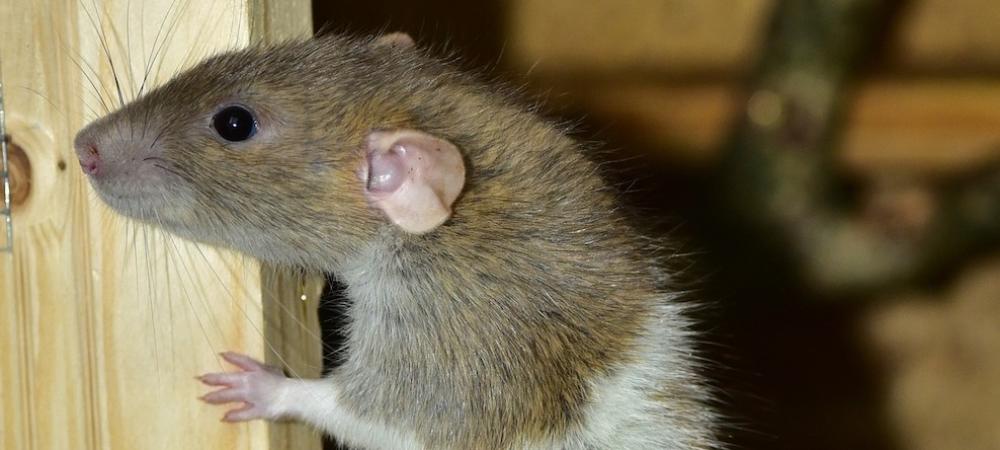Why Are Rodents In My House?

Rats and mice are notorious for their ability to find their way into your home through the smallest holes, and many rodents can fit through holes half their size (in the case of a mouse, that’s holes smaller than a dime). Even entry points high off the ground can be within their reach, as some rodents can jump as high as three feet straight up.
- Entry Points
- Signs Of A Rodent Infestation
- What Attracts Rodents?
- What Do Rodents Eat?
- Dangers Of An Infestation
- How To Prevent A Rodent Infestation
Entry Points For Rodents
Rodents are small and agile, allowing them to squeeze through very small openings. If a hole is big enough for their head to fit through, the rest of their body can follow. Common entry points into homes for rodents include:
Unplugged Holes in New or Old Piping or Air Vents
Because they can fit through such small holes, rodents can turn a small gap in your piping into a highway to travel through your home.
Holes in Roof, Foundation, or Walls
Rodents prefer to live and travel in areas that are tucked away and dark, so they will often travel within walls when given the opportunity. Any holes in your roof, foundation, or walls can provide them quick access to your rafters, attic, basement, and other prime locations for them to settle down.
Drain Pipes
Unfortunately, it is true that rats and mice can swim considerable distances. For this reason, they can travel through drain pipes and even up through your toilet bowl!
Holes in Screens
Mice and rats will also enter homes through tears in window and door screens; because they can scale walls, and can even find their way in through upper-story windows.
Common Signs of Rodents in The House
While rats and mice in the home can often go undetected until a serious infestation occurs, there are some common sightings that you may notice that could mean these pests are scampering around. Keep an eye out for the following signs of a rodent infestation:
- Holes in your baseboards.
- Streaks along your walls.
- Small dark droppings in your pantry.
- Scratching noises.
- Tracks or footprints.
- Strange behaviors from your pets.
What Attracts Rats To Your House?
It’s a common misconception that rodents are only drawn to dirty homes. In reality, rats and mice may enter your home simply in search of water or shelter. Indoor plants can be an attractant, as they provide both a food source and ideal nesting ground. A leaky pipe or sink can be a great water source for a rodent looking for somewhere to nest. Even a pet bowl that’s not washed often enough can have a strong enough odor to attract a hungry mouse. The easier you make it for them to settle down in your home, the more likely it is you’ll end up with an infestation.
What Do Rodents Eat?
Rats and mice are opportunistic eaters and will pretty much eat anything they can get their hands on. That said, they do have a few favorites. Mice love seeds, nuts, and chocolate, while rats prefer meat and sweets. If you think about it, your pantry items are basically an all-you-can-eat buffet for rodents.
The Dangers of a Rodent Infestation
While mice and rats might seem cute, the risks they pose to your home sure aren’t. These pests can do immense cosmetic and structural damage to your home right under your nose. Mice and rats often carry ticks and fleas, which can be dangerous to your family and pets. These little critters can also wreak havoc on your clothes, pantry, and other belongings when tearing into them in search of nesting materials or food. In severe cases, rodents can chew through electrical wires, leading to costly repairs and even electrical fires. Rodents can also carry as many as 35 different diseases, including Salmonella and Hantavirus. It’s in your best interest to deal with any potential infestations well in advance to avoid bigger problems down the road.
How To Prevent a Rodent Infestation
While there are a lot of different ways rodents can enter your home, there are also several concrete steps you can take to make your home less appealing to these pests, which include:
- Storing all food in airtight containers.
- Cleaning up all crumbs and food residue immediately.
- Fixing and monitoring leaky pipes.
- Inspecting your piping, walls, attic, and basement for new gaps frequently to ensure that there are no new openings that allow for rodent access.
- Keeping the toilet lids closed when not in use.
- Installing grates over drains can help deter rodents looking to slip in through this avenue.
- Replacing screens whenever they show signs of damage.
If doing all this on your own sounds intimidating, calling in a professional rodent exterminator can be a great way to ease your mind. At Vertex Pest Control, we offer a 100% guarantee with our rodent control and would be happy to inspect your home and help you determine how to best prevent a rodent infestation. Give us a call today at [phone-number] to learn more about our customizable rodent treatment plans!
